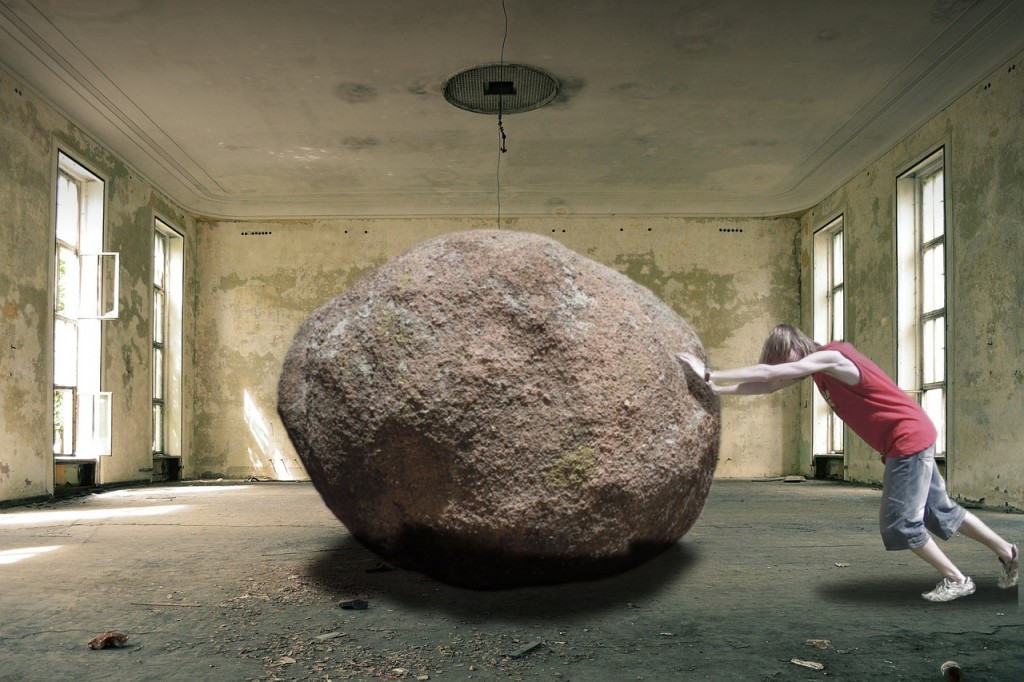Why does my training always hurt?
 Should it?
Should it?
I’ve been through many, many training cycles over the years and I noticed that when I am doing it the right way it’s almost always hard. I think that’s a myth or maybe a mindset challenge that we have. That at some point the training effect is going to kick in and you are going to feel great. It might not be the case. You might never have, or you might have very few of those ‘it feels easy’ days.
It’s hard. Yes the training effect is a real thing. Yes you get better as you train. But, that doesn’t necessarily mean the workouts get easier.
It can be mentally discouraging. You can get mentally weary from many hard workouts in a row. You can feel like you’re never going to turn the corner. The truth is everyone feels like that sometimes. You have to trust your training plan and your coach. You have to mentally focus on doing as well as you can with the workout that you have been assigned for today, for now and not worry about whether it sucks or not.
That’s hard to do.
Especially if you are training for a specific event. You may be grinding through hard workout after hard work out and you wonder “How the heck am I ever going to be ready to race? If I feel like this on race day I’m sunk!”
The truth is all your training may feel hard but that could make your event feel easy. In this case your goal is not to train to make your training feel easy. (or at least easier) Your goal is to do well in your event and sometimes that means all the training feels hard.
You have to mentally separate the training from the event and trust your plan. All plans are designed to have you peak on race day. All your work outs can be horribly hard and you can still have a great race after the appropriate taper and recovery and race prep.
It’s ok for your training to feel hard as long as you’re fit and rested on race day. It is actually quite common to have all your training feel like work but then have your race go off well. Your training performances are an indicator of your fitness but not an indicator of your race-day fitness.
For example you may want to push yourself to the failure point in training, but you wouldn’t want to do this midway through your target race. Having found the failure point in training gives you a better idea of what to do in your race.
There are two valid reasons for your training feeling hard. The first is that the training cycle is a series of hard efforts with recovery. Typically these are in waves that build in intensity as you get closer to your event. The last hard wave crests 2-3 weeks before your event. Then you tune and taper into the event.
Think of this as a rubber band that you are stretching or a spring that you are compressing. Each time you push a little harder and put more stress into to spring. Each time the spring is compressed a little more. Then on race day you release all that stored up energy from the spring.
While you’re working to compress the spring it may seem hard and you may not realize just how much power you are putting into the bank. You only realize it when you release the spring on race day.
The key to maximize the benefit you get out of a training plan is to get as close to the edge as you can but still recover. Push as hard as you are capable of then step back and let the adaptations caused by that effort take root. When each workout cycle is harder you may feel like it’s all work, but if your plan is good you are actually recovering and improving with each cycle to be able to peak on race day. It isn’t the workout that makes you better. It is the recovery and adaptation to the workout that makes you better.
The second reason all the workouts may feel hard is that the variety of workouts doesn’t allow you to fall into a groove. You may only do core work once a week. That’s enough to get race fit, but it’s not enough to ever make the core work feel easy. If all you did was the same core workout 3 times a week you’d get used to it and it would start to feel easy. Because you need the variety of workouts core, legs, arms and chest, hills…you can’t get enough cycles of any one particular workout in to make it feel easy.
It’s ok for all the workouts to feel hard.
There is also one very NOT OK reason all your workouts could feel hard. That one reason is that you have over trained. What happens with over training is that you don’t give your body enough recovery. Going back to the spring analogy, this is where your push so hard and so long that you break the spring’s ability to store energy and its ability to bounce back.
A good training plan and a good coach will pull you back from the edge before you go over. They will maximize the push but also give you enough recovery to not throw your system out of whack.
Remember, everyone is different. How you react to a workout is different than how someone else will. How fast you recover is dependent on you and your fitness. That’s why coaching can help us because they will monitor us and pull us back from the edge of over training.
In summary, if you are training for an event your workouts are supposed to feel hard. It’s ok. In your head separate the workouts from the event, just because the training seems crappy doesn’t mean your race is going to be bad. Don’t get discouraged. Focus on doing today’s work out. Trust your plan. Trust your coach. Make sure you are getting enough variety and recovery to avoid over training.
The way you wrap your head around the training cycle is a large contributor to your success. Understand the hard and crappy workouts for what they are, just bricks in a wall you’re building. You just don’t get to see the finished product until the end.

